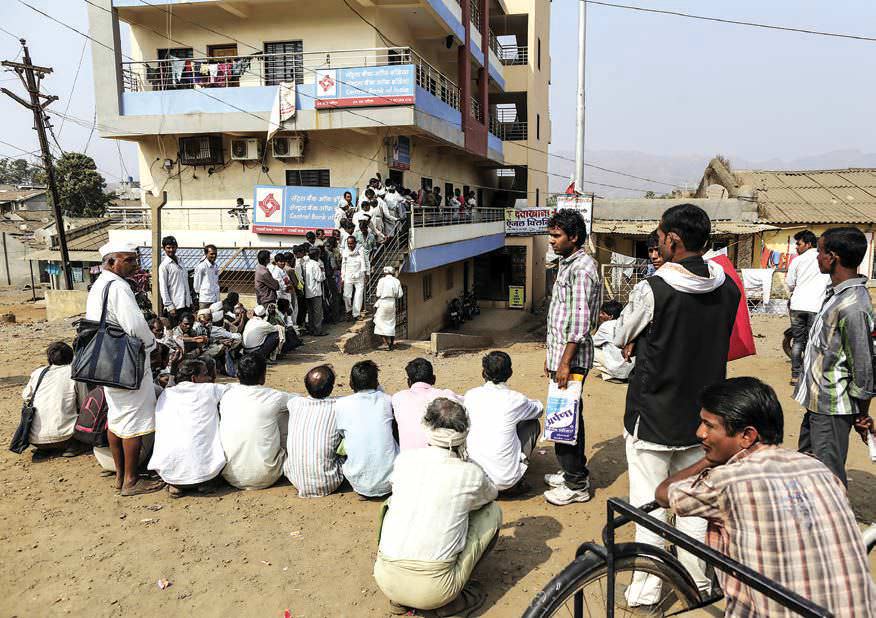Many still rely on it, even after the government made bank notes hard to get.

India’s road to a cashless economy is going to be longer than many technological optimists had hoped. It turns out people will shift to digital payments very quickly when they’re forced to, but they’ll still want some paper money in their purses.
Back in November, Prime Minister Narendra Modi shocked the nation by announcing that existing 500-rupee ($7.75) and 1,000-rupee bank notes—about four-fifths of the rupees in circulation—would become invalid almost overnight and had to be exchanged for new bills. The idea was to curb tax evasion and corruption by exposing stockpiles of cash that had stayed outside the banking system and were essentially invisible. Indians have used cash for about 98 per cent of consumer payments.
After millions of Indians lined up for hours at banks to deposit their now-useless notes or exchange them for new denominations, economic growth faltered in the first quarter of 2017 as consumer sentiment and cash-dependent industries were hit. With valid paper currency in short supply because the new notes rolled out more slowly than expected, the Reserve Bank of India set daily limits on cash withdrawals from ATMs. As Indians sought ways around the shortages, the value of digital payment transactions surged to a record 150 trillion rupees in March, according to central bank data, up from about 94 trillion rupees in November, the month in which the old notes were voided.
Diese Geschichte stammt aus der August 1, 2017-Ausgabe von Bloomberg Businessweek Middle East.
Starten Sie Ihre 7-tägige kostenlose Testversion von Magzter GOLD, um auf Tausende kuratierte Premium-Storys sowie über 8.000 Zeitschriften und Zeitungen zuzugreifen.
Bereits Abonnent ? Anmelden
Diese Geschichte stammt aus der August 1, 2017-Ausgabe von Bloomberg Businessweek Middle East.
Starten Sie Ihre 7-tägige kostenlose Testversion von Magzter GOLD, um auf Tausende kuratierte Premium-Storys sowie über 8.000 Zeitschriften und Zeitungen zuzugreifen.
Bereits Abonnent? Anmelden

Golfing With The Enemy
Did Donald Trump's executives violate the Cuban embargo?

Super-Rich Syrians Wait for War's End
Actor, author, playwright. Gill Pringle tries her hand at unravelling the mystery behind this enigmatic multi-hyphenate

Pam Codispoti
The mastermind behind the industry-shaping Chase Sapphire Reserve Card sets her sights on banking

This Time It's The Economy
President Rouhani’s budget sets offprotests from people angry about unemployment and inflation

Saudi Prince Counts On Support Of Citizens
State-worker salary increases appeal to the people, but policy may throw the budget off track

Stalin's Legacy Is Choking The Ukrainian Economy
The government has resisted pressure to lift a ban on land sales, despite pressure from the IMF and investors

Catastrophe Bonds Survive A Stormy Year
The turbulence of 2017 couldn’t destroy a market for betting against disasters

Riding The West Bank's Credit Boom
Increased consumer lending is creating a bubble in the West Bank

You'd Be Crazy To Buy Pizza With Bitcoin
Speculative fervour makes the cryptocurrency clumsy for commerce

What If The President Loses His Party?
Trump has to figure out a way to work with Republicans in Congress, or the global economy may be at stake